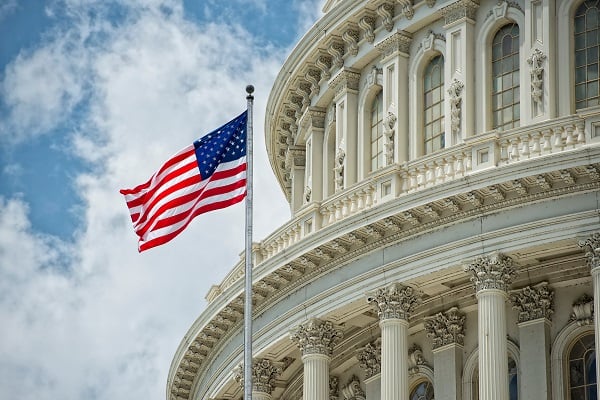U.S. Department of Energy: U.S. Grid Faces Urgent Reliability Challenges Amid AI-Driven Load Growth and Plant Retirements
A new report by the U.S. Department of Energy provides a comprehensive assessment of the adequacy and reliability of the U.S. electric grid and warns that without urgent reforms and investment, the U.S. electric grid will be unable to support the nation’s economic ambitions, particularly in artificial intelligence (“AI”) and digital infrastructure. The report responds to recent executive orders emphasizing the need for a uniform, data-driven approach to evaluating grid reliability, particularly in the face of accelerating power plant retirements and surging electricity demand from data centers and AI applications.

Agencies Collectively Move to Overhaul Environmental Review Regulations
On July 3, 2025, numerous federal agencies initiated an effort to revise the manner in which they comply with the National Environmental Policy Act (NEPA). NEPA, a cornerstone of environmental governance and project development in the U.S., has historically been implemented through regulations from the Council on Environmental Quality (CEQ). The DC Circuit questioned the legality of those regulations, as well as CEQ’s authority to implement them. And at the direction of President Trump’s February 25, 2025 Executive Order 14154 — “Unleashing American Energy” — CEQ rescinded its NEPA implementing regulations. In place, CEQ provided guidance for agencies that instructed them to update their NEPA procedures by February 2026 in a manner consistent with recent statutory amendments that prioritizes “efficiency and certainty over any other policy objectives.” Today, we are getting our first glimpse into what that process will look like.
EPA Updates Clean Air Act Standards Applicable to Small Waste Incinerators
On June 30, 2025, the U.S. Environmental Protection Agency (EPA) finalized updates to its New Source Performance Standards (NSPS) and Emission Guidelines for Other Solid Waste Incineration (OSWI) units under the Clean Air Act (CAA). These units — combustion systems that incinerate solid waste from commercial or institutional sources not otherwise regulated under specific incinerator categories — include very small municipal waste combustors and institutional incinerators. The final rule includes applicability-related and definitional changes expanding the class of incinerators subject to NSPS, revises the OSWI subcategories and tightens emission limits for key pollutants. It also adopts changes to startup, shutdown, and malfunction (SSM), and expands testing, monitoring, reporting, and recordkeeping requirements that will affect both existing and new OSWI units.

FERC Accelerates Natural Gas Infrastructure Expansion Through Key Waivers and Rulemaking
On January 20, 2025, President Donald J. Trump issued Executive Order No. 14156, Declaring a National Energy Emergency, which directed federal agencies to “identify and use all relevant lawful emergency and other authorities available to them to expedite the completion of all authorized and appropriated infrastructure [and] energy . . . projects.” On June 18, 2025, in alignment with this Executive Order and in response to two petitions filed by the Interstate Natural Gas Association of America (“INGAA”), the U.S. Federal Energy Regulatory Commission (“FERC”) advanced a package of regulatory actions aimed at accelerating the development of natural gas infrastructure.

Supreme Court Issues Split Rulings on Clean Air Act Venue Disputes
On June 18, 2025, the U.S. Supreme Court issued decisions in two significant Clean Air Act cases — EPA v. Calumet Shreveport Refining and Oklahoma v. EPA — clarifying the appropriate venue for legal challenges to certain final EPA actions. In Calumet, the Court held that EPA’s universal denials of small-refinery-exemption (SRE) petitions under the Renewable Fuel Standard program were “based on a determination of nationwide scope or effect,” and thus challenges may only be brought in the D.C. Circuit Court of Appeals. By contrast, the Court in Oklahoma held that challenges to EPA’s disapproval of State Implementation Plans (SIPs) belong in the applicable regional circuit courts because the agency’s determinations were based on facts and rationales unique to each state. Although some gray areas remain, the twin decisions put several long-standing venue issues to rest and should encourage quicker resolution of Clean Air Act regulatory challenges.

Department of Transportation Announces a Streamlined Regulatory Exemption Process for Autonomous Vehicles
On June 13, the U.S. Department of Transportation (DOT) and the National Highway Traffic Safety Administration (NHTSA) announced changes to the process for exempting autonomous vehicle companies from the Federal Motor Vehicle Safety Standards (FMVSS) under 49 C.F.R. Part 555. Part 555 offers an important route for the sale and deployment of innovative autonomous vehicles. The recent announcement evidences a desire to speed up agency decisions on Part 555 exemptions, though the application process will continue to be a substantial undertaking.

Deregulatory Announcements at the U.S. Department of Transportation: A Sign of Bigger Things to Come?
On May 29, the U.S. Department of Transportation announced more than 50 deregulatory actions at the three operating administrations of the department that focus on road transportation: the Federal Highway Administration (FHWA), Federal Motor Carrier Safety Administration (FMCSA), and National Highway Traffic Safety Administration (NHTSA). The Secretary of Transportation was quoted as saying, “my department is slashing duplicative and outdated regulations that are unnecessarily burdensome, waste taxpayer dollars, and fail to ensure safety.”

FERC Orders Action on Co-Location Issues Related to Data Centers Running AI
Earlier today, at the February 20, 2025 Federal Energy Regulatory Commission (FERC) Open Meeting, FERC Commissioners voted unanimously to launch a review of issues associated with the co-location of large loads at generating facilities at PJM Interconnection, L.L.C. (PJM). The review will look at whether the PJM tariff needs to establish rules to provide clarity on co-location while ensuring grid reliability and fair costs to consumers.

President Trump’s Executive Order Seeks to Reduce Federal Regulation
President Trump’s January 31, 2025, Executive Order (EO) titled “Unleashing Prosperity Through Deregulation,” is a part of the new Administration’s broader policy to reduce federal regulation. The EO finds that federal regulations impose significant costs and complexities on American citizens and businesses that hinder economic growth, innovation, and global competitiveness – and it is the Administration’s policy to alleviate these burdens. This marks a policy change from the approach of the prior administration and is a broader effort than the regulatory reforms of the first Trump Administration.

Top 5 Energy Actions You Should Know from President Trump’s First Day
On January 20, 2025, President Trump began his second term with the signing of 26 executive orders (EOs), which included the recission of almost 80 EOs of the previous administration. Trump’s orders contain both repeals of key Biden Administration policies and calls to agency action to reassess treatment of major energy issues associated with domestic energy production. Here are the top five actions to know from President Trump’s first day as the new administration begins its reshaping of U.S. energy policy for his second term in office.


